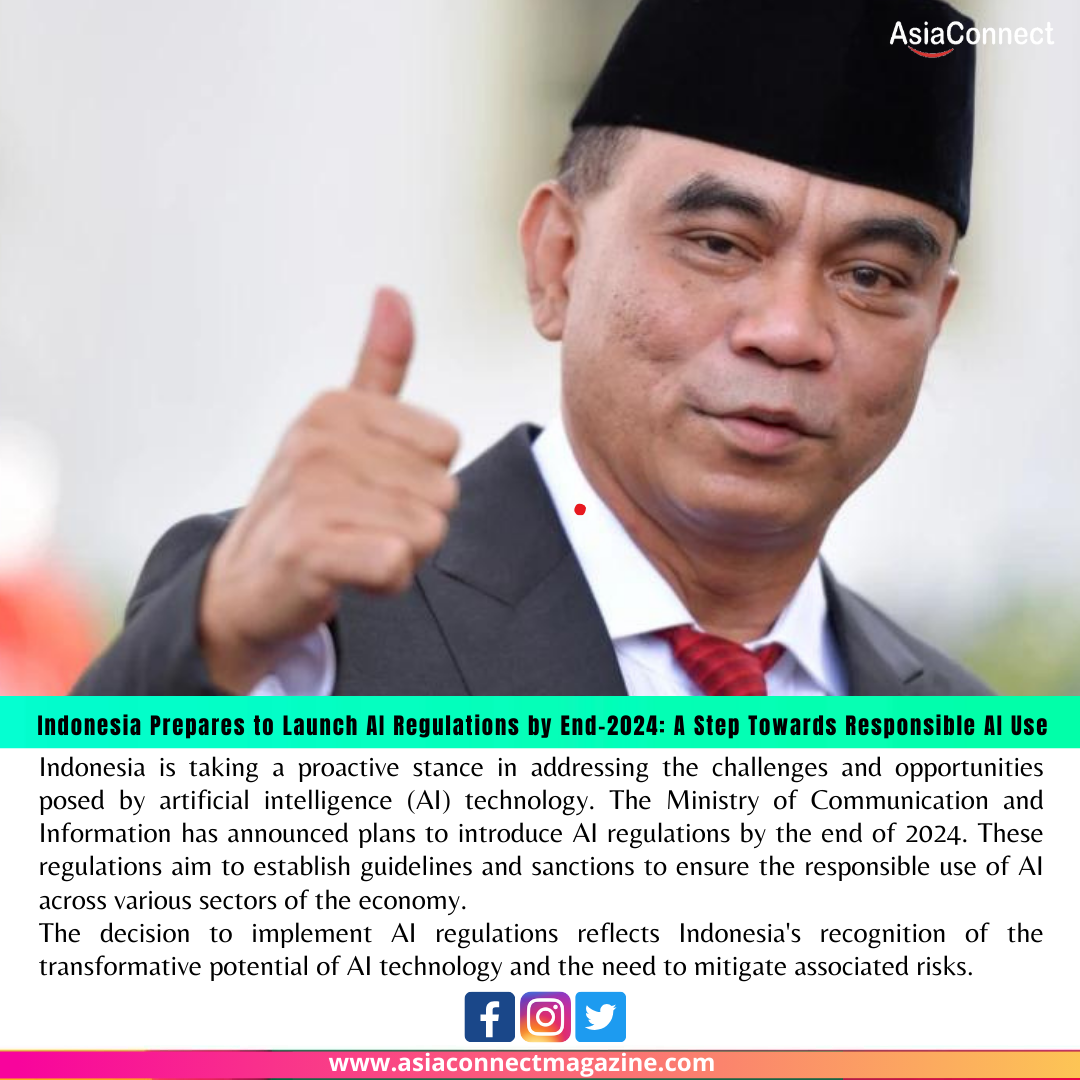Indonesia is taking a proactive stance in addressing the challenges and opportunities posed by artificial intelligence (AI) technology. The Ministry of Communication and Information has announced plans to introduce AI regulations by the end of 2024. These regulations aim to establish guidelines and sanctions to ensure the responsible use of AI across various sectors of the economy.
The decision to implement AI regulations reflects Indonesia’s recognition of the transformative potential of AI technology and the need to mitigate associated risks. As AI continues to proliferate in industries such as finance, healthcare, and transportation, policymakers are faced with the task of balancing innovation with accountability.
According to the Ministry of Communication and Information, the forthcoming regulations will primarily focus on setting out sanctions related to AI misuse. This includes addressing concerns such as data privacy violations, algorithmic bias, and discriminatory practices. By establishing clear guidelines and penalties, the government aims to promote ethical AI development and usage while deterring malicious activities.
One of the key challenges in regulating AI is the rapid pace of technological advancement, which often outpaces the development of regulatory frameworks. Indonesia’s approach acknowledges the need for flexible and adaptive regulations that can keep pace with evolving AI applications and algorithms.
The introduction of AI regulations aligns with broader global efforts to address the ethical and societal implications of AI technology. Countries around the world are grappling with similar issues related to data governance, algorithmic accountability, and AI-driven decision-making. By enacting clear and enforceable regulations, Indonesia aims to foster trust and confidence in AI systems while safeguarding the rights and interests of its citizens.
The implementation of AI regulations is also expected to have significant implications for businesses operating in Indonesia. Companies leveraging AI technologies will need to ensure compliance with regulatory requirements, including data protection standards, transparency in algorithmic decision-making, and accountability for AI-driven outcomes. Adhering to these regulations will not only mitigate legal risks but also enhance corporate reputation and trust among consumers.
Furthermore, the introduction of AI regulations could stimulate innovation and investment in Indonesia’s burgeoning tech sector. Clear regulatory frameworks provide certainty and stability for businesses, encouraging them to explore new AI applications and solutions. This, in turn, could drive economic growth, create job opportunities, and position Indonesia as a hub for AI innovation in the region.
However, the successful implementation of AI regulations will require collaboration and coordination among government agencies, industry stakeholders, and civil society organizations. A multi-stakeholder approach is essential to ensure that regulations are comprehensive, effective, and responsive to the needs and concerns of all stakeholders.
In addition to regulatory measures, Indonesia must also invest in building AI capacity and expertise among its workforce. This includes promoting STEM education, fostering collaboration between academia and industry, and providing training programs for AI professionals. By investing in human capital, Indonesia can harness the full potential of AI technology to drive inclusive and sustainable development.
In conclusion, Indonesia’s decision to launch AI regulations by the end of 2024 represents a significant step towards ensuring the responsible and ethical use of AI technology. By establishing clear guidelines and sanctions, Indonesia aims to address concerns related to AI misuse while fostering innovation and investment in the burgeoning tech sector. With the right regulatory frameworks and investments in human capital, Indonesia can position itself as a leader in AI governance and innovation in the Asia-Pacific region.





